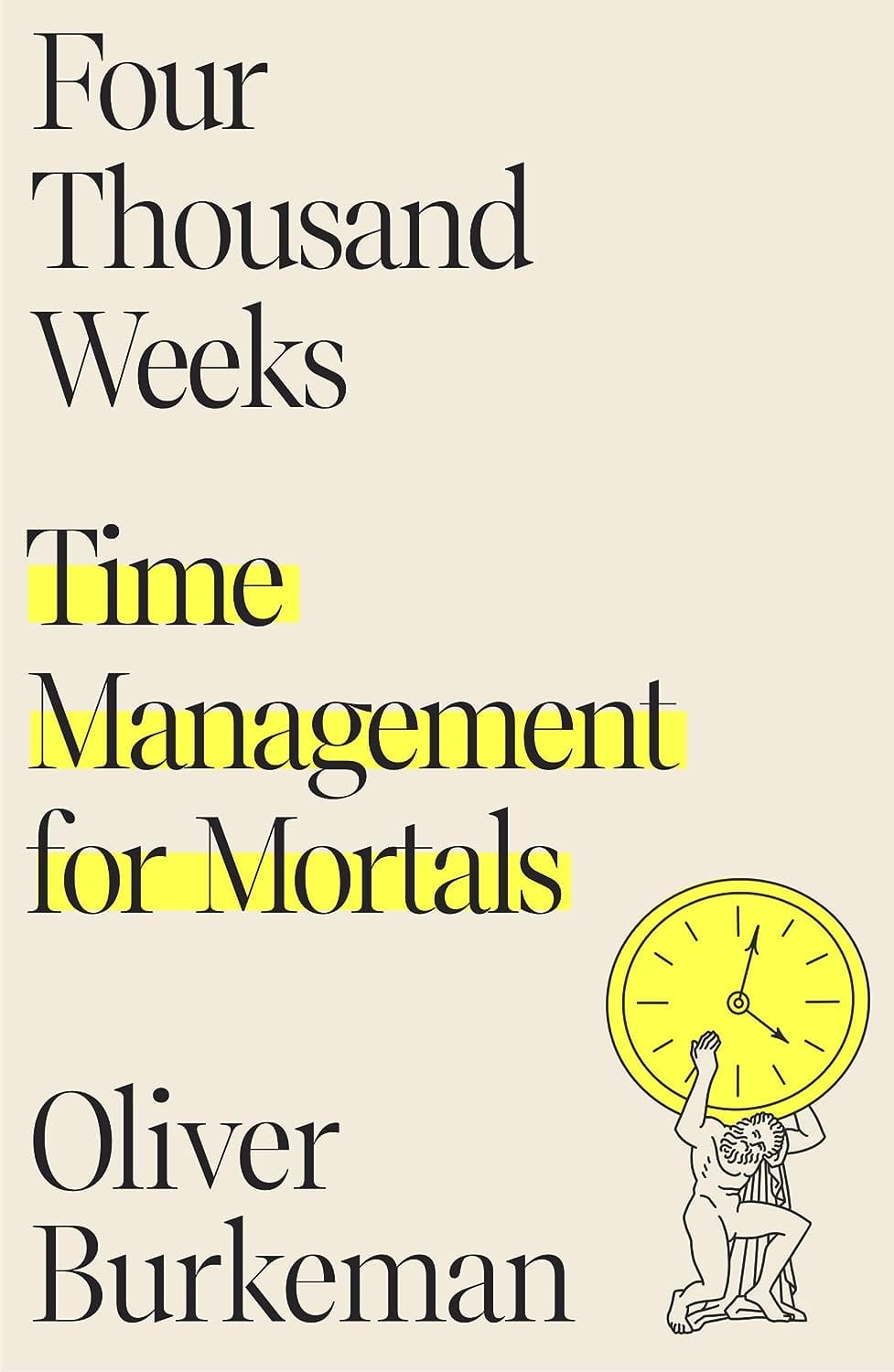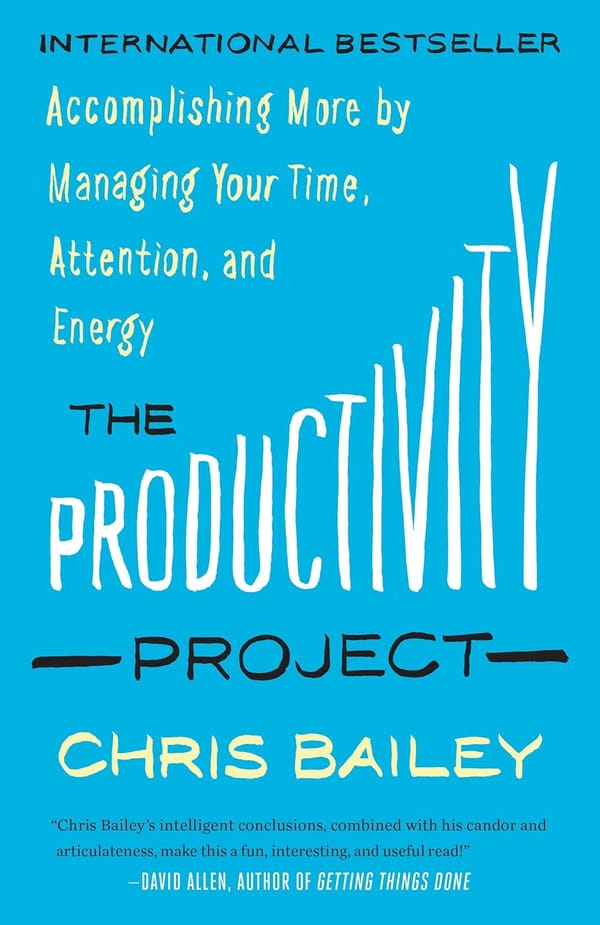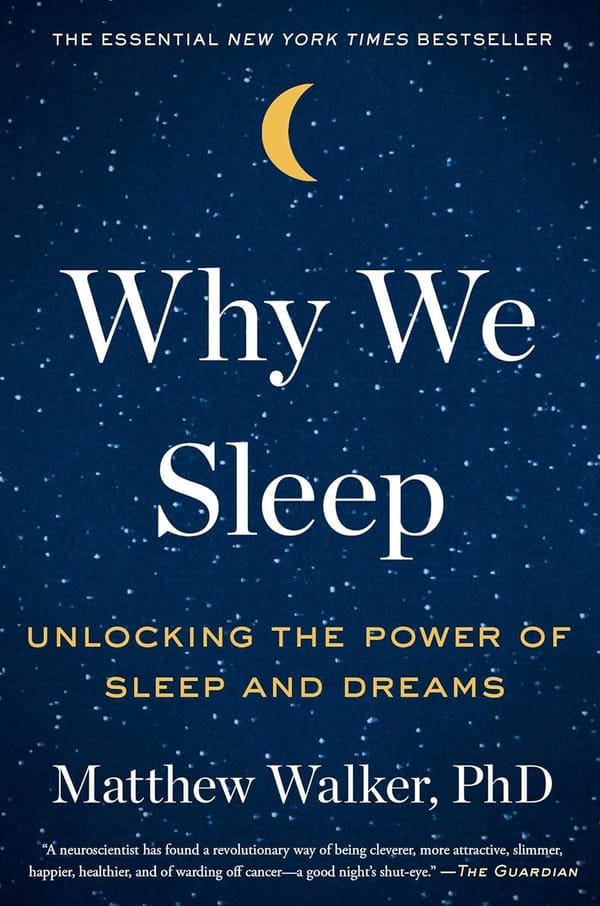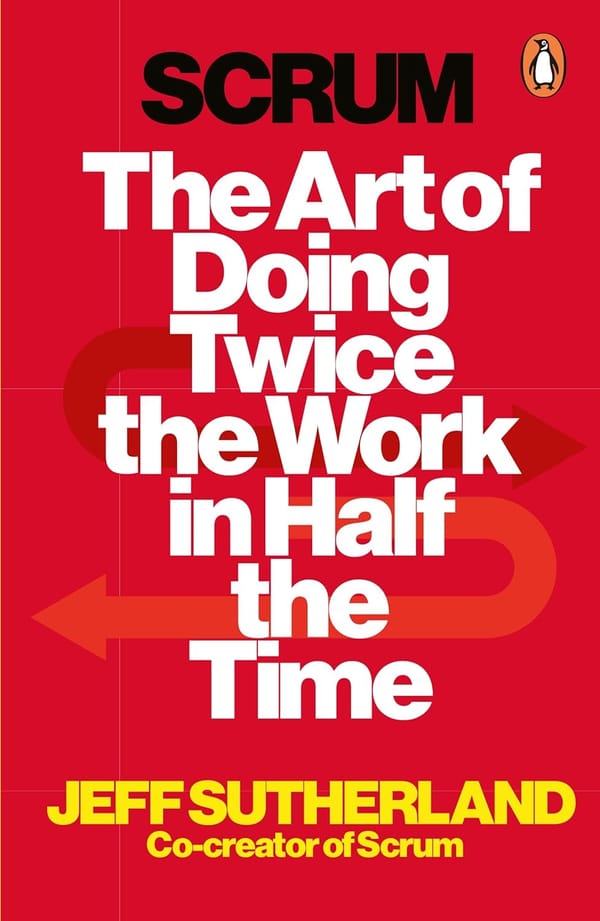Four Thousand Weeks - Book Notes
Escape the Efficiency Trap: Embrace the Fulfillment of 'Four Thousand Weeks' Philosophy! Discover Oliver Burkeman's insightful exploration of our modern obsession with productivity and the scarcity of time in his thought-provoking book. Join us as we delve into Burkeman's wisdom, offering practical strategies to reclaim your time, cultivate meaningful engagement, and find profound fulfillment amidst life's inherent limitations.
If you enjoyed my review, consider supporting me by using the affiliate links below to purchase the book. Your kindness fuels my passion for sharing captivating reads with you!
🚀 The Book in 3 Sentences
- In "Four Thousand Weeks," Burkeman navigates the paradox of our boundless ambitions against the backdrop of limited time, urging readers to reconsider their relationship with productivity and leisure.
- By critiquing the modern obsession with efficiency and embracing the inherent limitations of time, Burkeman encourages a shift towards a more mindful and fulfilling existence.
- Through insights into the social dimension of time and the value of embracing insignificance, Burkeman offers a philosophical framework for finding meaning in the finite and cultivating a deeper sense of presence and connection in our lives.
👱 Who Should Read it?
This book is recommended for individuals who feel overwhelmed by the demands of modern life and seek strategies to cultivate a more fulfilling and meaningful existence. It is particularly relevant for those who grapple with issues related to time management, productivity, and the pursuit of happiness in a fast-paced world. Readers who are interested in exploring concepts such as patience, meaningful engagement with time, and the importance of genuine connections will find this book insightful and thought-provoking.
🍀 How the Book Changed Me
Reading 'Four Thousand Weeks' was a revelation for me. It forced me to confront the finite nature of my time on this earth and reevaluate my relentless pursuit of productivity. Previously, I meticulously planned every waking hour, driven by an obsession with efficiency. However, Burkeman's insights encouraged a significant shift in my mindset.
Now, while I still maintain a level of structure in my daily life, I've incorporated deliberate slots for social time with family, friends, and moments of simply being present. This shift has allowed me to appreciate life's moments more fully, moving away from viewing every activity as a means to a greater end.
By embracing Burkeman's philosophy, I've learned to value patience, meaningful engagement with time, and the importance of genuine connections. This newfound perspective has enriched my life, fostering a deeper sense of fulfillment and contentment amidst life's inherent limitations.
✍️ Top 3 Quotes
- "As the world gets faster and faster, we come to believe that our happiness, or our financial survival, depends on our being able to work and move and make things happen at superhuman speed. We grow anxious about not keeping up—so to quell the anxiety, to try to achieve the feeling that our lives are under control, we move faster."
- "When you finally face the truth that you can’t dictate how fast things go, you stop trying to outrun your anxiety, and your anxiety is transformed."
- "No wonder it comes as a relief to be reminded of your insignificance: it’s the feeling of realizing that you’d been holding yourself, all this time, to standards you couldn’t reasonably be expected to meet."
🔨 3 Action Points
- Embrace patience and resist the urge to constantly accelerate:
Recognize that the pursuit of constant speed and productivity only leads to increased anxiety and a sense of never being able to keep up. Practice patience by accepting that you cannot control the pace of everything in your life. - Cultivate meaningful engagement with your time:
Allocate time for activities that you enjoy for their own sake, rather than solely for external validation or productivity. Pursue hobbies or interests that feel personally fulfilling, even if they may seem unimpressive to others. - Foster genuine connections and shared experiences:
Instead of hoarding time as a solitary pursuit, prioritize shared experiences and collaborative endeavors that align with the rhythms of your community. Recognize the value of synchronizing your time with others and seek opportunities for meaningful connection and collaboration.
📗 Summary & Notes
The Paradox of Time: Abundance of Ambition, Scarcity of Time
In "Four Thousand Weeks," Oliver Burkeman probes the fundamental paradox of human existence: the juxtaposition of our boundless ambitions against the stark reality of limited time. This existential tension is encapsulated in the concept of having "four thousand weeks" – a metaphorical representation of the average human lifespan. Despite our lofty aspirations and grand plans, we're confronted with the sobering truth that time is a finite resource, steadily slipping away with each passing moment.
The Modern Plight: Busyness, Productivity, and the Efficiency Trap
Burkeman critiques the modern obsession with busyness and productivity, arguing that our relentless pursuit of efficiency often leads to a paradoxical outcome: the more we strive to do, the less time we seem to have. The allure of productivity promises to enhance our lives, yet it ultimately ensnares us in a vicious cycle of ever-increasing demands and diminishing returns. The efficiency trap, as Burkeman describes it, traps us in a futile quest for more, perpetuating a sense of inadequacy and anxiety about never having enough time.
Historical Perspectives: Task Orientation vs. Time Management
Drawing on historical insights, Burkeman contrasts the task-oriented lifestyles of medieval peasants with our contemporary preoccupation with time management. In contrast to our modern fixation on scheduling and efficiency, medieval life revolved around the organic rhythms of daily tasks and seasonal cycles. There was no abstract notion of time as a finite resource to be managed; instead, life unfolded naturally according to the demands of work and nature. This historical perspective highlights the artificiality of our modern time constraints and invites us to reconsider our relationship with time.
The Attention Economy: Distraction, Convenience, and the Cost of Focus
Burkeman delves into the pervasive influence of the attention economy, wherein our attention is commodified and exploited for profit. In this digital age, we're bombarded with endless distractions vying for our time and focus, often at the expense of meaningful engagement with the present moment. Convenience becomes a double-edged sword, offering immediate gratification while eroding our capacity for deep, immersive experiences. The insidious impact of the attention economy reshapes our perceptions of what truly matters, leading us astray from genuine fulfillment.
Embracing Limitation: Finding Meaning in the Finite
Ultimately, Burkeman advocates for a paradigm shift in our approach to time and productivity. Instead of futilely striving to do more, he suggests embracing our limitations and reframing our relationship with time as a finite and precious resource. By relinquishing the pursuit of endless productivity and learning to prioritize what truly matters, we can cultivate a deeper sense of fulfillment and presence in our lives. Burkeman's insights encourage us to savor the richness of each moment, recognizing that true meaning lies not in the quantity of our accomplishments but in the quality of our experiences.
Embracing Leisure: The Value of Hobbies and Mediocrity
Burkeman proposes that cultivating hobbies purely for the joy of their pursuit offers a partial solution to the problem of an overly instrumentalized life. Engaging in activities solely for their intrinsic value, rather than for external validation or achievement, allows us to reclaim time for leisure and personal fulfillment. He suggests that a good hobby should feel slightly embarrassing, indicating that it's pursued for its own sake rather than for social approval. Furthermore, embracing mediocrity in hobbies challenges the prevailing culture of productivity, freeing us from the pressure to excel and allowing space for enjoyment without performance anxiety.
The Fallacy of Acceleration: Impatience and the Illusion of Control
Burkeman delves into the paradoxical nature of technological progress, which promises to save time but often exacerbates feelings of impatience and inadequacy. Despite the efficiency gains afforded by technology, societal expectations about the pace of life continue to escalate, fueling a perpetual cycle of striving for greater speed and control. The relentless pursuit of acceleration only serves to heighten anxiety and diminish satisfaction, trapping individuals in an addictive spiral of perpetual haste. Burkeman suggests that confronting the truth of our limitations and embracing patience offers a path to psychological resilience and contentment.
The Art of Problem Solving: Radical Incrementalism and Originality
Burkeman advocates for a radical approach to problem-solving, emphasizing the importance of embracing discomfort and uncertainty. He introduces the concept of radical incrementalism, which encourages individuals to tackle problems incrementally and to resist the urge to rush or push beyond their limits. By cultivating patience and perseverance, one can navigate the iterative process of trial and error, ultimately leading to breakthroughs and original insights. Burkeman underscores the value of embracing unoriginality as a necessary precursor to genuine creativity, challenging conventional wisdom and encouraging a more nuanced approach to innovation.
The Social Dimension of Time: Collaboration and Synchronization
Burkeman explores the social dimension of time, emphasizing the importance of coordination and cooperation in maximizing its value. He argues that time is a "network good," deriving its significance from its shared nature and the quality of interpersonal relationships. Rather than hoarding time as a solitary pursuit, Burkeman advocates for greater engagement with community rhythms and collective endeavors. He highlights the profound sense of meaning that arises from synchronized interactions with others, underscoring the intrinsic value of collaboration and mutual support.
Embracing Insignificance: Cosmic Perspective and Existential Freedom
Burkeman offers a philosophical perspective on the insignificance of individual existence in the vast cosmos, suggesting that acknowledging our cosmic insignificance can be liberating. By recognizing the futility of striving for grandiose notions of success and significance, individuals can embrace a broader range of meaningful experiences and find solace in the transient nature of life. Burkeman encourages a shift away from self-imposed standards of achievement towards a more expansive and inclusive understanding of fulfillment, grounded in the recognition of life's inherent impermanence.
Conclusion
"Four Thousand Weeks" by Oliver Burkeman urges us to rethink our approach to time and productivity. By embracing the value of leisure, cultivating patience, and fostering genuine connections, we can find deeper fulfillment in our lives. Let's escape the efficiency trap and savor each moment with intention and gratitude, embracing the beauty of life's finite nature.



